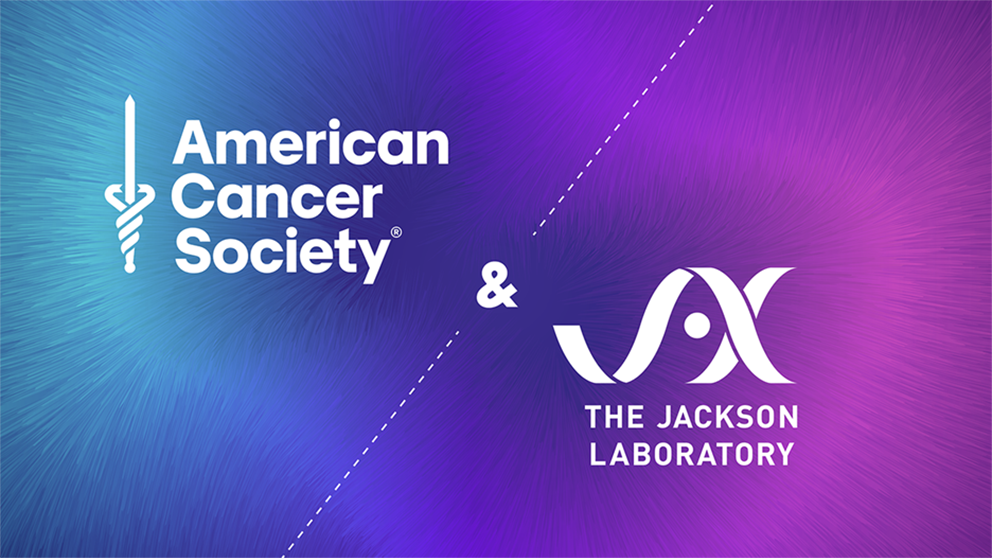
Earlier this year, The Jackson Laboratory’s NCI-designated Basic Research Cancer Center and the American Cancer Society (ACS) teamed up to have ACS-funded trainees attend advanced cancer courses at JAX, aiming to deepen their understanding of cutting-edge cancer research techniques through experiential learning.
The ongoing program aims to empower ACS-funded trainees in biomedical research by providing training, networking and hands-on cancer research experiences. “Diversity in science not only broadens our perspectives but also stimulates innovation and helps the scientific community better address health disparities,” shares Professor and Director of the JAX Cancer Center, Karolina Palucka, M.D., Ph.D. “This collaborative educational program advances the mutual goals of both the JAX Cancer Center and the American Cancer Society to recruit and support more trainees from historically disadvantaged backgrounds,” she adds.
Nine talented trainees from academic research institutions nationwide were selected to participate in the NIH/NCI-funded cancer training workshops at JAX. The common thread: each trainee is supported by the ACS Discovery Science Program. Three postdoctoral fellows attended the Workshop on Techniques in Modeling Human Cancer in Mice, while six postbaccalaureate fellows from the ACS Diversity in Cancer Research (DICR) Program, a part of the Discovery Science portfolio, attended the Cancer Short Course on Experimental Models of Human Cancer.
The DICR Postbaccalaureate Program is a growing initiative through ACS that supports bachelor-level trainees from underrepresented minority groups pursuing careers in cancer research, offering two years of financial support and mentorship in research labs or clinical settings to prepare for doctoral studies in STEM or health professions.
“We are thrilled to be able to further support these trainees in collaboration with The Jackson Laboratory. The interactive course environment allows students to gain valuable cancer research experience, helping to broaden their scientific knowledge and develop a lifelong network,” says Douglas Hurst, Ph.D., Scientific Director of the Biochemistry and Immunology of Cancer program at ACS. “We are grateful to work with JAX to provide an environment that accelerates scientific discovery and catalyzes critical collaborative relationships,” adds William Dahut, M.D., Chief Scientific Officer of ACS.
Experiential learning that creates a lasting impact

The ACS-supported research trainees are from prestigious institutions across the country, where they study various aspects of cancer research, including understanding complex mechanisms like gene regulatory networks, the role of proteins, and immune responses in various cancer types such as breast cancer, non-Hodgkin lymphoma, Acute Myeloid Leukemia, and renal cell carcinoma.
From developing skills in practical cancer modeling techniques to gaining perspectives from early career researchers, mentors and seasoned faculty, the supportive environment allows the trainees to hone their knowledge and interests in cancer research. This impacts not only their current research projects, but future studies as well. Justin Rendleman, Ph.D., a postdoctoral fellow at Rockefeller University, reflected “While my current project focuses on drug response in breast cancers, I would be interested in utilizing various organoid models in my future research projects. Seeing the process first-hand was particularly enlightening for me.”
Experience gained at the JAX cancer training programs can also help inspire future research directions as they begin to navigate the next phase of their careers. “Since I am interested in the M.D.-Ph.D. career path, these mice techniques are skills that I will be using for years to come,” explained Jordan Swaby, VERTICAL Fellow at the Vanderbilt-Ingram Cancer Center. Similarly, Ryli Justice, a postbaccalaureate fellow at Indiana University-Purdue University Indianapolis and aspiring physician-scientist, emphasized that “learning mouse handling skills and injections was helpful as I'd like to branch into more in vivo work.”

Ryli Justice, a Poster Award winner at the 33rd Annual Short Course on Experimental Models of Human Cancer at JAX.
Continued collaboration
“We are excited about this collaboration with ACS and the opportunity to expand our joint educational impact through this partnership for years to come,” says Brent Berwin, Ph.D., Director of JAX Courses and Workshops. JAX recently renewed the NCI grant funding of the Cancer Short Course on Experimental Models of Human Cancer and, in collaboration with ACS, looks forward to increasing the opportunities for learners to gain hands-on cancer research experience.
Charlie Wray, Ph.D., JAX Vice President for Education and Associate Director of Cancer Research Training and Education for the JAX Cancer Center noted, “By combining our resources and expertise, we will foster the development of the next generation of cancer researchers, particularly those from historically underrepresented and disadvantaged backgrounds. We are committed to the success of this collaboration and anticipate many future years of advancing cancer research together.”





